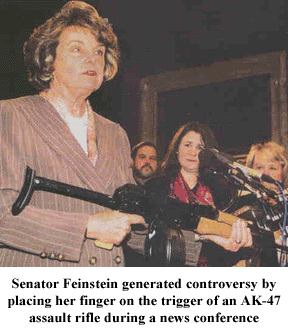
Dear Mr.
XXXXXXXX:
Thank you for writing to share your
thoughts about the vacancy on the Supreme Court. I appreciate the time
you took to write and I welcome the opportunity to respond.
I understand that you do not believe
the Senate should consider a nominee from President Obama to succeed Justice
Antonin Scalia. Please know that Article II of the U.S. Constitution
states that the President "shall nominate, and by and with the advice and
consent of the Senate, shall appoint judges of the Supreme Court."
Therefore, I strongly believe that President Obama has an obligation to put
forward a nominee to fill the Supreme Court vacancy.
Chief Judge Merrick Garland has
served since 1997 on the United States Court of Appeals and has been described
as a consensus candidate by Republicans. His strong qualifications have
earned him praise on both sides of the aisle. For example, Republican
Senator Orrin Hatch, who previously chaired the Judiciary Committee and
strongly supported Garland in 1997, recently described Garland as a "fine
man," and also said he would be a consensus candidate for the Court.
As you may know, Chief Judge Garland, during his time as the Department of
Justice, led the investigation and prosecution following the tragic bombing in
Oklahoma City in 1995, which claimed the lives of 168 people. I have
attached Senator Hatch's floor statement in support of Garland's 1997
confirmation.
You
may be interested to know that 14 Supreme Court Justices have been confirmed in
presidential election years, before the presidential election took place.
Justice Anthony M. Kennedy was confirmed in 1988 during the final year of
President Ronald Reagan's term. Justice Clarence Thomas was confirmed in
October 1991, after the presidential election campaign had begun that
year. In both instances, the Senate had a majority of Democratic members,
but still moved to confirm the nominee of a Republican President to the high
court. In fact, not since the Civil War, in 1862, has the Senate taken
longer than a year to confirm a replacement for a Supreme Court vacancy.
In addition, I believe an
eight-member court creates the potential for deadlock in important cases, which
will create uncertainty in the law. In 2004, Justice Scalia wrote about
the dangers of an eight-member Court. He stated that in cases of a tie
vote, the Court "will find itself unable to resolve the significant legal
issue presented by the case." That means the law and constitutional
protections could differ in different parts of the country, denying the full
system of justice guaranteed by our Constitution. In fact, the Supreme
Court has already deadlocked in two cases since Justice Scalia passed
away. I spoke about this issue on the Senate floor and have attached for
you a copy of my statement.
While
we may disagree on this topic, please know that I respect your opinion and
appreciate hearing your feedback. I will certainly keep your thoughts in
mind as I continue my duties as a U.S. Senator. If you have additional
questions or comments, please do not hesitate to contact my Washington, D.C.
office at (202) 224-3841, or visit my website at www.feinstein.senate.gov.
Best regards.
Sincerely yours,
Dianne Feinstein
United States Senator
Dianne Feinstein
United States Senator


No comments:
Post a Comment